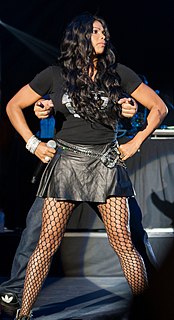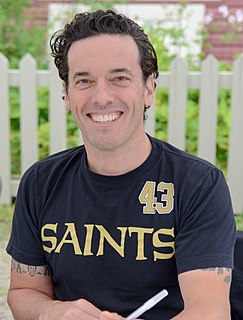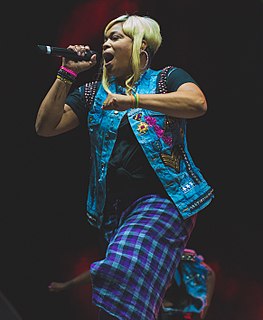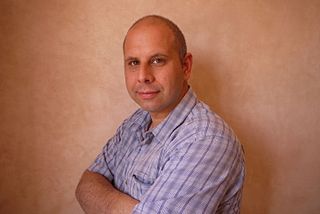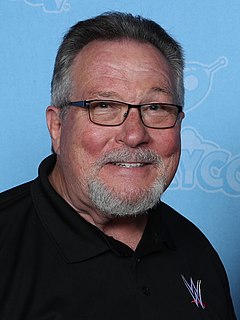A Quote by Pepa
I'm not ashamed to speak about anything. And what I'm telling you is real; it's from the heart.
Related Quotes
Courage is a heart word. The root of the word courage is cor - the Latin word for heart. In one of its earliest forms, the word courage meant "To speak one's mind by telling all one's heart." Over time, this definition has changed, and today, we typically associate courage with heroic and brave deeds. But in my opinion, this definition fails to recognize the inner strength and level of commitment required for us to actually speak honestly and openly about who we are and about our experiences -- good and bad. Speaking from our hearts is what I think of as "ordinary courage.
It's like fiction - the fact that somebody's telling you a story about people who didn't exist doesn't make the experience of the story any less real in your heart and mind. You go through heavy emotional responses to these stories, and wrestling is a similar thing - but it's happening in real space.
When an acting teacher tells a student 'that wasn't honest work' or 'that didn't seem real,' what does this mean? In life, we are rarely 'truthful' or 'honest' or 'real'. And characters in plays are almost never 'truthful' or 'honest' or 'real'. What exactly do teachers even mean by these words? A more useful question is: What is the story the actor was telling in their work? An actor is always telling a story. We all are telling stories, all the time. Story: that is what it is all about.
I do think that even with entertainment and telling stories, people in the entertainment industry have such a beautiful position in the world to speak about things that they're passionate about in a way that can grab people more than just sitting and telling someone about something, because you can show it visually.
Real travel is not about the highlights with which you dazzle your friends once you're home. It's about the loneliness, the solitude, the evenings spent by yourself, pining to be somewhere else. Those are the moments of true value. You feel half proud of them and half ashamed and you hold them to your heart.
I did make 'Stone Cold' Steve Austin the Million Dollar Champion on Raw. You know I saw the talent in Steve and I remember telling him - because a lot of people were telling him 'You need to do more' - I remember telling him, 'Don't do anything different, because what you do is believable, it's real.'
